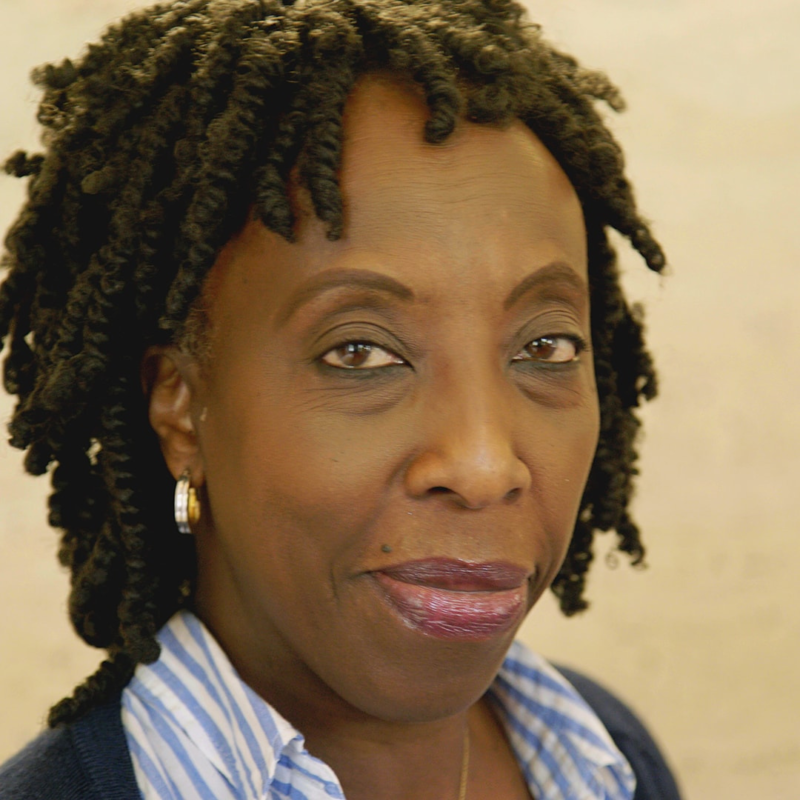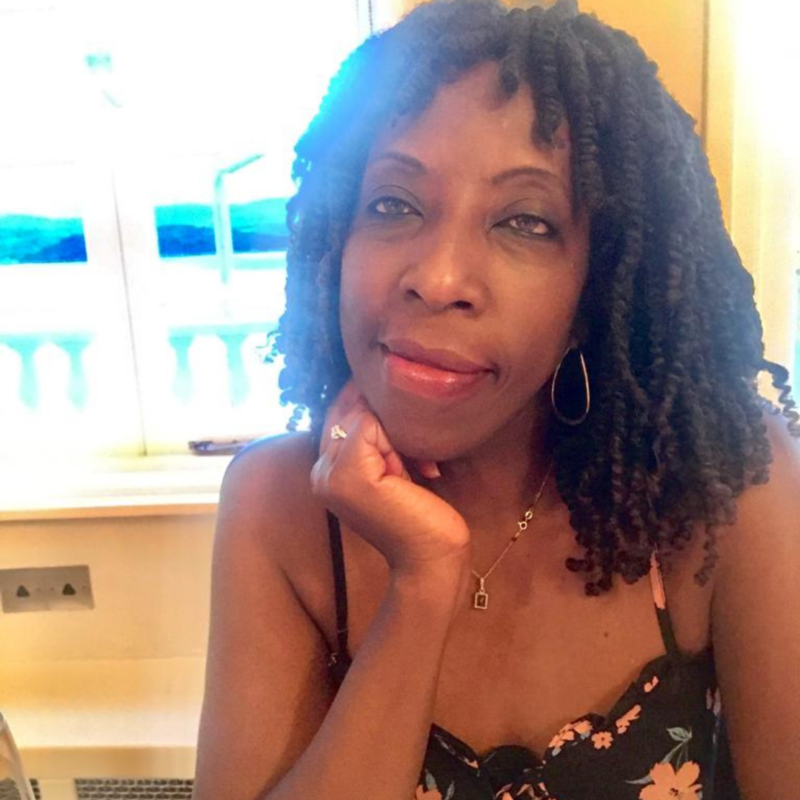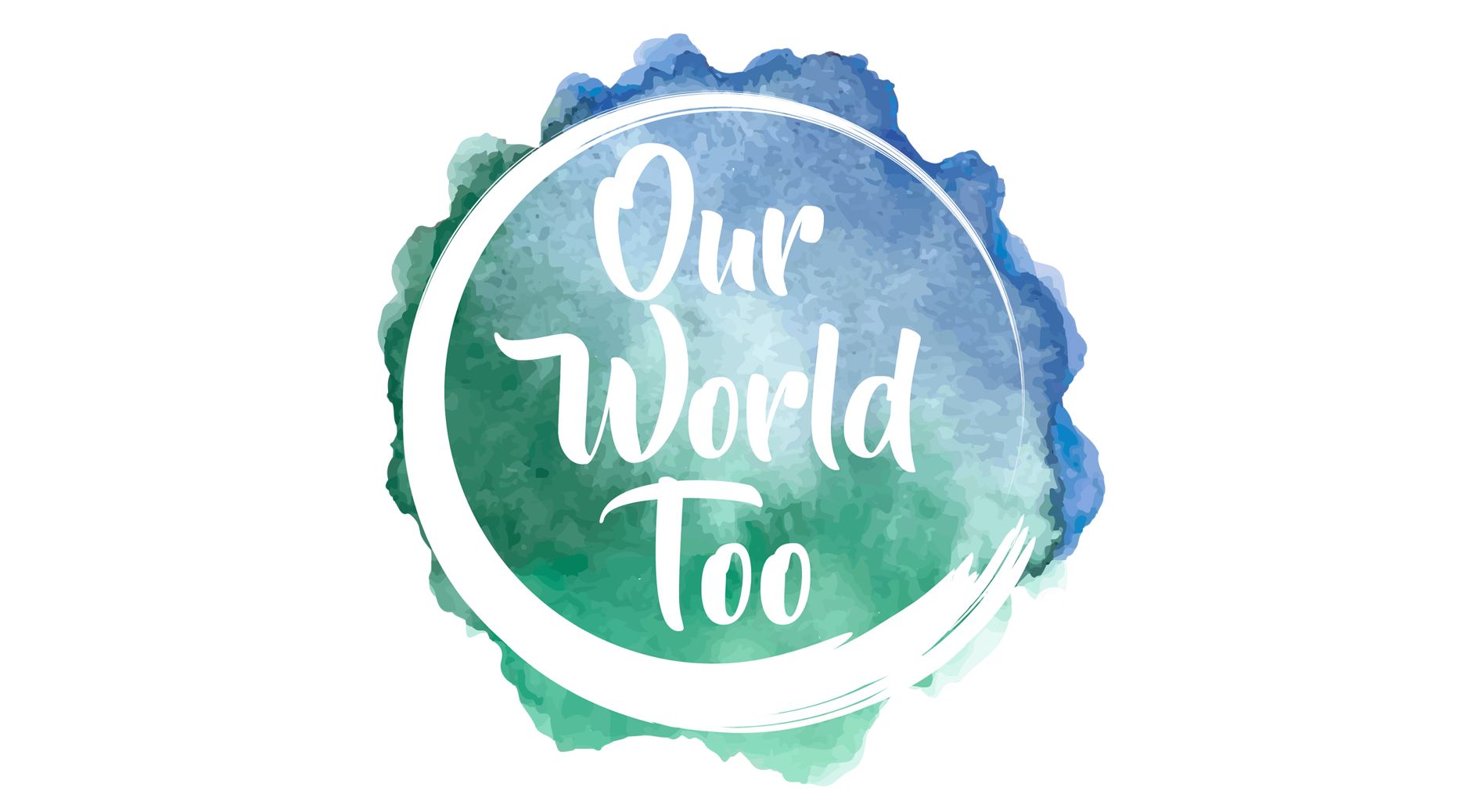I didn’t just want to survive, I wanted to thrive
I grew up in a country deeply divided along ethnic lines and as a Tutsi I was very lucky to survive the genocide. We led a privileged life because my Dad was one of the first people to go to school in Rwanda, he was also very lucky to be offered the role of Director of Agriculture in the Ministry of Agriculture. It was huge because he was Tutsi. My dad raised his sons and daughters as equals, he told us he would do whatever it would take to make sure we all went to school.
There was a lot of discrimination against the Tutsi before the genocide, but my dad used to say we don’t need to differentiate ourselves because we are all equal. We were very privileged to go to school and university but even though I got 1st place in primary school, I couldn’t go to secondary right away. You had to have connections and only after my dad spoke to the headmaster and minister were, we allowed to go.

I wanted to make a change. I had the opportunity to travel internationally across Europe and to the USA and I remember thinking, wow these places are so developed but I still had no desire to live there. I wanted to live in Rwanda and help develop my country.
My dad encouraged me to stay in school and fight for social justice and because of his encouragement, I grew up as a peace activist. I was deeply involved in the community especially with girls and women through the Girl Guide Association that I joined at a very young age. I wanted to make a change. I had the opportunity to travel internationally across Europe and to the USA and I remember thinking, wow these places are so developed but I still had no desire to live there. I wanted to live in Rwanda and help develop my country. I was frustrated by this immense gap between what I saw in Europe and our reality in Rwanda. Due to the discrimination against the Tutsi in Rwanda most of my siblings (I was born in a family of 14 children but when the genocide started only one of my sister and me lived in Rwanda) had already left Rwanda and were refugees in Burundi, Congo and Belgium. My friends asked why I didn’t want to claim asylum in another country, but I told them I didn’t want to be a foreigner or a refugee in another country.
I didn’t want to leave but I was forced to.
On the 7th of April 1994, the genocide began. If you were a Tutsi, you knew you would die. At the time I was staying at my parent’s house with my sister and our children. We lived across the street from a Catholic Church and when the killing started, we wanted to seek refuge in the church. Even though we lived across the road, my dad still had to pay the soldiers to allow us to cross the road. It was a miracle he let us go, people were already being murdered on the street.
In the past when you used to seek safety in Catholic Churches, you’d be safe but during the genocide even the churches weren’t safe, a lot of people were killed inside the churches by people who used to pray with them every Sunday. I was a teacher at the school that belonged to the Church where we were hiding and luckily, the priest allowed me, my sisters and our children to hide in a small house that belonged to teachers with a few of my colleagues.
My daughter was only 6 months old, and it was traumatic to have her with me. It’s hard to hide a crying child. I remember one of the women handing me medicine which would put the children to sleep so we could all stay alive. During the genocide, they killed babies and pregnant women in way you can’t even imagine.
The peacekeepers had come to Rwanda to save the expats not the Rwandans. The International Community abandoned us; we were only rescued because we had a personal connection.
I asked the priest if I could use the phone and I called my sister Cecile who lived in Belgium and told her we were going to die. About a week later, the priest came to find us and said someone was looking for us. We thought they had come to kill us, but it was my brother-in-law (Cecile’ s husband) who was a Belgian soldier and a UN peacekeeper. When we saw him, it felt like we were seeing God. The peacekeepers had come to Rwanda to save the expats not the Rwandans. The International Community abandoned us; we were only rescued because we had a personal connection.
We were put into a tank and loaded onto a military flight meant for expats. The majority of the plane was white with very few black people. Only those with connections could board. We were taken to a camp in Kenya where my brother-in-law had to negotiate to take us to Belgium. I had only left with a bottle of milk for my daughter. I didn’t even have shoes. I was given shoes and food in Nairobi. We travelled from Rwanda to Kenya before finally arriving in Belgium. On the 13th of April we saw my brother-in-law, and, on the 17th, we were in Belgium. There are the certain dates you mark in your memories.
Arriving in Belgium was the best day of my life. I remember my dad describing his feelings and saying he was ok with dying at 72 but it was hard to think of his children suffering. When we arrived in Belgium, my daughter got sick because she hadn’t had milk or access to clean water for 2 weeks, but I was just happy she was being treated in a Belgian hospital. I was very lucky to survive with my child, sister, nephews, nieces and my parents when everyone else was being killed. Most of the other people hiding in the church with us were killed. When the Hutu militias went to kill people in the church, my Mum tripped but so many bodies fell on top of her that she survived. I felt lucky to be alive. It took me a long time to come to terms with it and even now I still feel guilty sometimes.
Initially, we all stayed at my sister’s house, but it wasn’t big enough for all of us. Social services also said they wouldn’t help if I stayed with my sister. They said if I had a sister she should look after me, they didn’t acknowledge that I could have a family and still be in need. I went to go live in a detention centre for people who were waiting for their asylum/refugee claims to be processed. Only after they granted you status would you be given accommodation.
I only managed to stay there for 2 weeks because the conditions were terrible. The food was so bad I would throw up every time I ate. We had arrived at the right time and because the genocide was still ongoing, we managed to get refugee status in Belgium within 3 months. I feel lucky about the timing because our friends and family who arrived afterwards didn’t find it easy to get refugee or asylum status.
Life as a refugee was not easy, I focussed on the fact that we survived, I hung onto the positive. So many of my friends and family had been killed and raped. How could I not be grateful to have survived? So many of my friends had lost their entire family to the genocide, they had no one left. I was very lucky to have good family support that enabled me to get through it without collapsing. I was grateful I had survived, and it gave me this energy and need to do something for other people. I was grateful to be alive, I had to do something. It was my way of giving thanks for surviving.
When you don’t have much money and have refugee status in Europe, you are discriminated against and face racism. Living in Belgium was disempowering, it felt like you had no value as a human being.
When you don’t have much money and have refugee status in Europe, you are discriminated against and face racism. Living in Belgium was disempowering, it felt like you had no value as a human being. We had to live on social benefits despite having skills and experiences or settle for low position jobs. For 6 months social services used to call me every month and say they had found another cleaning job for me. I kept saying no, I had a Bachelors and Masters degree and I could speak French. It was very degrading for me. However, as a survivor, I wanted to do something to support my community. With some Rwandan friends, we set up a Radio called “peace” and we were doing programmes to encourage peaceful coexistence amongst Rwandans in refugee camps in Congo and Burundi.
After 4 years, we could apply for citizenship but despite this it wasn’t easy to integrate. I kept trying to apply for jobs, but I didn’t have much luck. However, I was involved with the Girl Guides in Belgium and supported them to raise funds to rebuild the Rwanda Girl Guides Associations. Working with the Girl Guides gave me a sense of purpose again. Not finding a good job and living on social benefits made me consider leaving Belgium and going back to Rwanda. It was around this time, when one of my friends in the Girl Guides Office in Brussels, encouraged me to apply for the role of Executive of Africa in the World Association Of Girl Guides and Girls Scouts in London. I didn’t speak English, so I did the interview in French, and they said if I was the best candidate, they would help me learn English. I got the job and discussed it with my family because it was a huge decision to move to the UK on my own with my 5 years old daughter. I didn’t just want to survive, I wanted to thrive. In 1998, I moved with my daughter who was 5 years old, I had to start from the beginning again.
The first 6 months in London were very hard but I got support from my line manager who has always been a great support and friend. I remember in November 98, my first year living in the UK, there was a fireworks display, I didn’t know what they were, and I thought the UK was at war. I remember putting my daughter under the bed and calling my friend and asking her what to do. She told me to open up my window and look outside. We weren’t at war they were only fireworks. It took a long time to recover from that one week we spent hiding in the church.

I worked for the World Association of Girl Guides and Girl Scouts for over 20 years as the Director for Africa. I was proud of my job because I made an impact in the lives of girls and young women in Africa. Having a good job, was an opportunity to settle down and give my daughter a chance to study and fulfil her potential. I knew she would face a lot of discrimination, but she would also have a lot of opportunities to achieve her dreams and be an active citizen in the community.
I dislike the hypocrisy of the international community immensely, why do they just support countries where they have an interest? Everyone should be treated as a human being with all the rights attached. I often find myself wondering why the UN peacekeepers just left, why didn’t they stay and protect us? They just left us. Why does the UN and the International Community exist? It’s only a club for the elite. They meet at the G7 and invite presidents from poor countries to pretend to talk but they abandoned us completely to the killers.
If the genocide had happened now, Belgium and the UK wouldn’t have treated us the same. It’s much harder for refugees now and that makes me sad. Instead of countries becoming more welcoming and supportive towards refugees they are treated more harshly.
If the genocide had happened now, Belgium and the UK wouldn’t have treated us the same. It’s much harder for refugees now and that makes me sad. Instead of countries becoming more welcoming and supportive towards refugees they are treated more harshly. In 1994, we were treated better than refugees in 2021, it’s very sad. It’s very right wing in Europe right now and it’s far more challenging to be a refugee now.
Since January this year, I am privileged to be the Director of Women for Refugee Women, an organisation that supports women who are seeking safety, like I was 27 years ago. I want to change what people think about refugees. Refugee; war, persecution, destitution, detention, disbelief but mainly it means also a second chance to belong, rebuild, contribute, give back, integrate, thrive, because refugees are human being with individuals’ stories. I want them to be part of the community, they aren’t taking what’s yours. Refugee contributions aren’t highlighted enough and we’re trying to change that through my organisation and the #TogetherWithRefugees coalition. I’ve spent more than 20 years paying taxes in the UK and we want to highlight that refugees do give back. We want to use the voices of women who have changed their lives and contributed.
In the UK, I would like to change public perception. Asylum seekers and refugees are people who come to seek safety, not to take away their houses. They are people. Once they are supported, they will contribute and build communities. I want the creation of a welcoming immigration policy, one that doesn’t put people who’ve gone through trauma in a detention centre. They need to accept us and look at refugees as friends.
